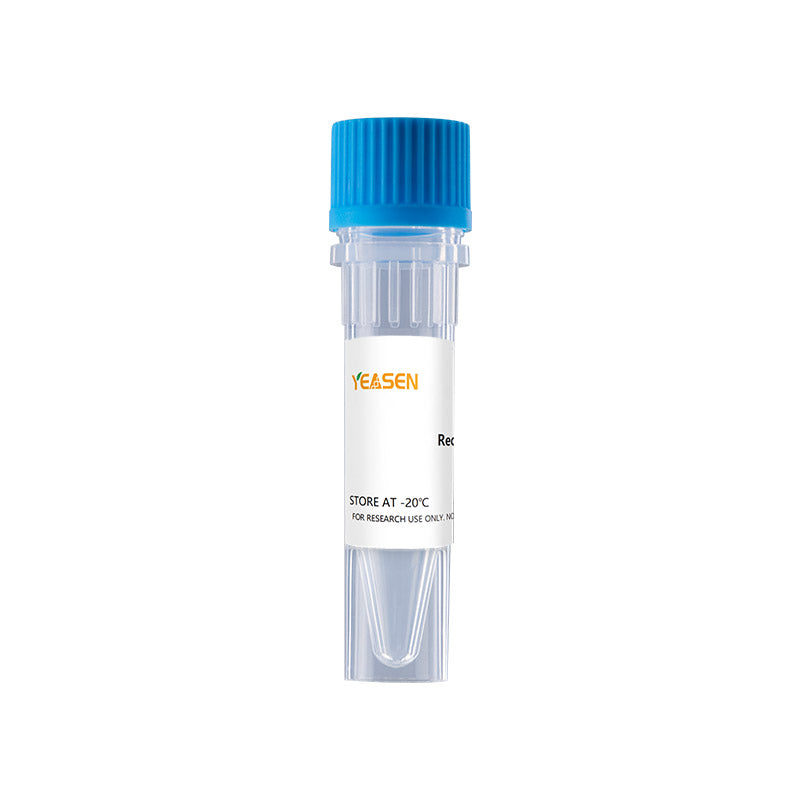Description
Interleukin-17A (IL-17A), also known as CTLA-8, is a glycosylated cytokine that plays an important role in anti-microbial and chronic inflammation. The six IL-17 cytokines (IL-17A-F) are encoded by separate genes but adopt a conserved cystine knot fold. Mature rat IL-17A shares 60% and 89% amino acid sequence identity with human and mouse IL-17A, respectively. IL-17A is secreted by Th17 cells, gamma /δ T cells, iNKT cells, NK cells, LTi cells, neutrophils, and intestinal Paneth cells. It forms disulfide-linked homodimers as well as disulfide-linked heterodimers with IL-17F. IL-17A exerts its effects through the transmembrane IL-17RA in complex with IL-17RC or IL-17RD. Both IL-17RA and IL-17RC are required for responsiveness to heterodimeric IL-17A/F. IL-17A promotes protective mucosal and epidermal inflammation in response to microbial infection. It induces chemokine production, neutrophil influx, and the production of antibacterial peptides. IL-17A/F likewise induces neutrophil migration, but IL-17F does not. IL-17A additionally enhances the production of inflammatory mediators by rheumatoid synovial fibroblasts and contributes to TNF-alpha induced shock. In contrast, it can protect against the progression of colitis by limiting chronic inflammation. IL-17A encourages the formation of autoreactive germinal centers and exacerbates the onset and progression of experimental models of autoimmunity. IL-17A has been shown to exert either tumorigenic or anti-tumor effects.
Product Properties
|
Synonyms |
CTLA8; CTLA-8 |
|
Accession |
Q61453 |
|
Unigene |
Rn.218513. |
|
Source |
E.coli-derived Rat IL-17A,Ala18-Ser150. |
|
Molecular Weight |
Approximately 30.0 kDa. |
|
AA Sequence |
AVLIPQSSVC PNAEANNFLQ NVKVNLKVIN SLSSKASSRR PSDYLNRSTS PWTLSRNEDP DRYPSVIWEA QCRHQRCVNA EGKLDHHMNS VLIQQEILVL KREPEKCPFT FRVEKMLVGV GCTCVSSIVR HAS |
|
Tag |
None |
|
Physical Appearance |
Sterile Filtered White lyophilized (freeze-dried) powder. |
|
Purity |
> 95% by SDS-PAGE and HPLC analyses. |
|
Biological Activity |
The ED50 as determined by inducing IL-6 secretion of murine NIH/3T3 cells is less than 1.0 ng/mL, corresponding to a specific activity of > 1.0 × 106 IU/mg. Fully biologically active when compared to standard. |
|
Endotoxin |
< 0.1 EU per 1μg of the protein by the LAL method. |
|
Formulation |
Lyophilized from a 0.2 µm filtered concentrated solution in 2 × PBS, pH 6.5. |
|
Reconstitution |
We recommend that this vial be briefly centrifuged prior to opening to bring the contents to the bottom. Reconstitute in sterile distilled water or aqueous buffer containing 0.1% BSA to a concentration of 0.1-1.0 mg/mL. Stock solutions should be apportioned into working aliquots and stored at ≤ -20°C. Further dilutions should be made in appropriate buffered solutions. |
Shipping and Storage
The products are shipped with ice pack and can be stored at -20℃ to -80℃ for 1 year.
Recommend to aliquot the protein into smaller quantities when first used and avoid repeated freeze-thaw cycles.
Cautions
1. Avoid repeated freeze-thaw cycles.
2. For your safety and health, please wear lab coats and disposable gloves for operation.
3. For research use only!
Payment & Security
Your payment information is processed securely. We do not store credit card details nor have access to your credit card information.
Inquiry
You may also like
FAQ
The product is for research purposes only and is not intended for therapeutic or diagnostic use in humans or animals. Products and content are protected by patents, trademarks, and copyrights owned by Yeasen Biotechnology. Trademark symbols indicate the country of origin, not necessarily registration in all regions.
Certain applications may require additional third-party intellectual property rights.
Yeasen is dedicated to ethical science, believing our research should address critical questions while ensuring safety and ethical standards.

